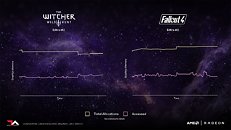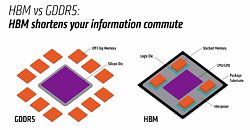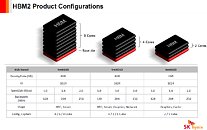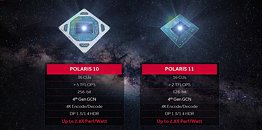
AMD's RX Vega to Feature 4 GB and 8 GB Memory
It looks like AMD is confident enough on its HBC (High-Bandwidth Cache) and HBCC (High-Bandwidth Cache Controller) technology, and other assorted improvements to overall Vega memory management, to consider 4 GB as enough memory for high-performance gaming and applications. On a Beijing tech summit, AMD announced that its RX Vega cards (the highest performers in their next generation product stack, which features rebrands of their RX 400 line series of cards to th new RX 500) will come in at 4 GB and 8 GB HBM 2 (512 GB/s) memory amounts. The HBCC looks to ensure that we don't see a repeat of AMD's Fury X video card, which featured first generation HBM (High-Bandwidth memory), at the time limited to 4 GB stacks. But lacking extensive memory management improvements meant that the Fury X sometimes struggled on memory-heavy workloads.
If the company's Vega architecture deep dive is anything to go by, they may be right: remember that AMD put out a graph showing how the memory allocation is almost twice as big as the actual amount of memory used - and its here, with smarter, improved memory management and allocation, that AMD is looking to make do with only 4 GB of video memory (which is still more than enough for most games, mind you). This could be a turn of the screw moment for all that "more is always better" philosophy.
If the company's Vega architecture deep dive is anything to go by, they may be right: remember that AMD put out a graph showing how the memory allocation is almost twice as big as the actual amount of memory used - and its here, with smarter, improved memory management and allocation, that AMD is looking to make do with only 4 GB of video memory (which is still more than enough for most games, mind you). This could be a turn of the screw moment for all that "more is always better" philosophy.










